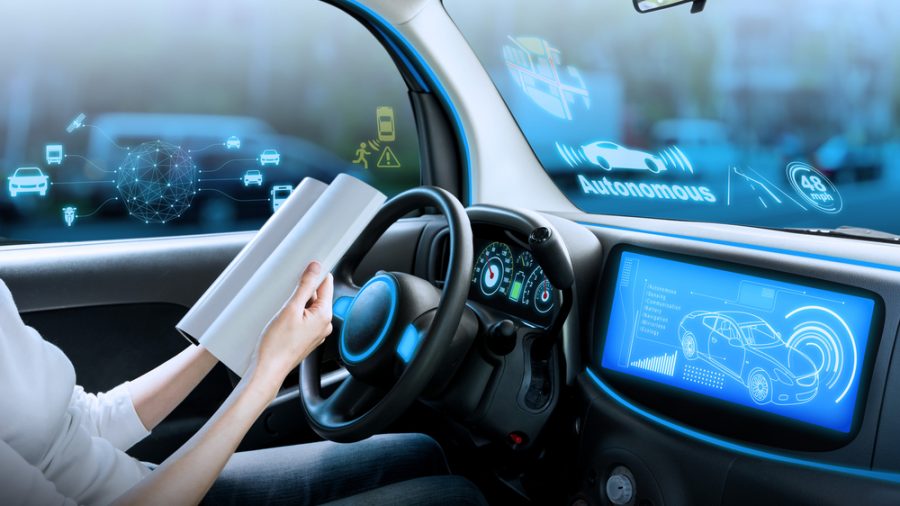The story of self-driving cars has not been quite the glorious chapter it was supposed to be. Some people claim the whole venture has failed miserably, in spite of costing tens of billions of dollars. Do self-driving cars have a future?
Not a good start for self-driving cars
The race to be first with a self-driving car has been breathtaking but expensive. Companies like Telstra, Apple and Cruise have spent billions on their high tech dream of travelling without an error-prone human in charge. Yet early trials of self-driving vehicles have run into all sorts of problems:
- Cruise had to withdraw its Robotaxis in the US.
- Apple abandoned its 10-year Titan project.
- Uber taxi caused someone’s death and ended its driverless taxi trials
- Tesla’s Autopilot controversy.
Tesla’s Autopilot feature is linked to 11 road deaths in 11 months and the company now faces several lawsuits. In fact, the Automated Vehicles Act passed in the UK prevents companies from misleading the public about the capabilities of their vehicles.
Given their record so far, how can we claim self-driving cars are safer?
Are self-driving cars really safer?
The main argument for self-driving cars is still a theoretical one. That is, by removing human errors (the main cause of accidents) we will reduce the number of road deaths. How much they can be reduced depends on whose forecast you use. For example, California Department of Motor Vehicles optimistically estimates these vehicles will reduce annual road collisions by at least a third.
The drawback of estimates is they are based on certain assumptions. For example, will these vehicles be sharing the road with conventional cars? It’s highly likely that self-driving cars will be working alongside conventional cars for 20 years at least. This could create “mutual incomprehension” between human and AI systems, leading to more crashes not less.
It’s common to believe tech is the best solution to a problem. But isn’t it true that human errors will simply be replaced by machine errors? Ultimately, all machines are programmed by humans anyway. These fallible humans must be able to anticipate and program millions of different driving situations.
Can self-driving cars drive as well as people?
Over the last 3 decades in Australia, the rate of road deaths has fallen 2.5 times from 11.28 to 4.6 people per 100,000 in 2022. Looking at it another way, 99,995 per 100,000 people now get home safely.
Since human error probably hasn’t changed much, the lower rate is because we have much safer cars and more safety rules. However, it would be wrong to say humans are not good drivers. One US academic in Florida suggested the chances of a human driver having a crash, compared to not having a crash, could be one in a billion.
For example, how many times in the year did you not crash, compared to how many cars you could have crashed with, and how long you spent driving on the roads?
Carmakers have certainly underestimated the task of matching, let alone improving, human driving skills. Teaching a computer to interpret everything it might discover on the roads is like measuring a piece of string. As someone said, ‘If a computer hasn’t been told about camels it won’t know how to respond’.
How will self-driving cars work in the future?
Originally, the vision was for everyone to sit back and watch movies in self-driving cars on city streets, highways or rural roads. That vision is fast being pared back to travelling on dedicated locations only and for specific uses.
First, they will work most safely on straight, simple highways specifically designed for them, not beside other cars (and humans) on normal, highly complex roads.
Second, they will most likely be used in specific circumstances. For example, as last-mile transport in retirement villages or other communities, at airports and in rural or remote regions.
Third, it’s unlikely most people will be able to afford one.
Does Australia have self-driving cars?
Australia is keen not to be left behind in the self-driving car world. It has conducted limited trials of a level 4 car called ZOE.2 in Mount Isa, Qld to prove these vehicles can adapt to the Australian outback. Meanwhile, a new Automated Vehicle Safety Law is underway, following a recent public consultation period.
In the UK, the Automated Vehicles Act has been passed with self-driving vehicles mooted to be on its roads by 2026.
However, passing legislation to allow these vehicles to operate is no guarantee of success. Professor Milford, QUT Centre for Robotics, says:
‘Fully autonomous cars carrying passengers that don’t require human intervention or supervision are still at least 5 or 10 years away, and may or may not ever happen.’ She also says the biggest problem is economic. Nobody has yet made sufficient profit to justify the massive research and development needed (not even Apple).
Do you think self-driving cars have a future? We think it’s too early to consign them to the bin just yet. Perhaps we need a rethink of their true capabilities and how they can integrate with other methods of transport in an optimal and progressive way.


your opinion matters: